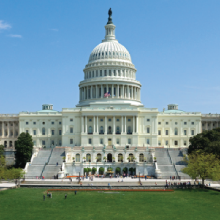Sutent and the Elderly Patient: A Case for a Lower Dosage?
by Jay Bitkower on December 5, 2014A recent original study reported in Clinical Genitourinary Cancer ®, June, 2014, Vol. 12, No.3 provides a ray of hope for elderly patients with metastatic RCC. Led by Dr. Ugo De Giorgi and a team of Italian oncologists, a retrospective study of 185 patients revealed that an alternative regimen of up to half the standard dosage of sunitinib may be considered a treatment option.
In many clinical practices, there are strong doubts regarding the use of Sunitinib as a treatment regimen for elderly patients. Enrollment by elderly patients (+ 70 years) in clinical trials is severely lacking. Most likely, this is due to several reasons including safety, toxicity, or quality of life issues. As a consequence, there are limited data on the impact of sunitinib as a therapy for those over 70 years old with mRCC.
The standard therapy regimen for sunitinib is 50 mg per day for 4 weeks and then 2 weeks off, continuously repeated depending on toxicity and progression. Of the 185 patients reported in this study, 123 were given this standard therapy. The remaining 62 patients were given an alternative therapy regimen of between 25 – 37.5 mg per day for the same period of time. The alternative regimen (lower dosage) group was able to tolerate the side effects more favorably than those with higher dosage with 52% having grade 3/4 toxicities versus 71% of the standard group. Of note, the progression-free survival (PFS) and overall survival (OS) rates were approximately the same in both groups, being dependent only on performance status and Heng risk score. This could prove to be good news for those elderly patients who are given the option of a reduced dosage.
While the results may be subject to varied interpretation due to the limitations of the study, it appears that a lower dosage of sunitinib for certain elderly patients may be a therapy option not considered previously possible. Without question, additional research is necessary to further understand why some older patients responded favorably to this lower dosage regimen.
In a similar retrospective study reported on at the ASCO conference in 2011, Thomas Hutson, from Baylor Sammons Cancer Center in Dallas, presented a poster on the efficacy, PFS and OS, and safety of sunitinib in the elderly, which was also defined as anyone 70 years old and above. In this retrospective study, Dr. Hutson analyzed six clinical trials, first and second line, treating mRCC patients.
The mix in age of the 1,059 patients in the six trials was approximately four to one favoring under 70 years old to aged 70 and above. Dosage for two-thirds of the patients was the standard 50 mg, 4 weeks on/2 weeks off, however, unlike the Italian study, the other patients took 37.5 mg continuous dosage rather than 37.5 mg, 4 weeks on/2 weeks off regimen. Nevertheless, the results were the same with no significant difference in PFS and OS between the two cohorts. As for toxicity, adverse events for sunitinib patients were similar for the two age groups although fatigue, cough, and peripheral edema were more common in the(+ 70 years) group and hand-foot syndrome was more common in the under 70 group.
Dr. Hutson concluded that “elderly patients derive similar efficacy benefit from sunitinib as younger patients, and advanced age alone is not a reason to withhold sunitinib therapy in patients with mRCC”.



